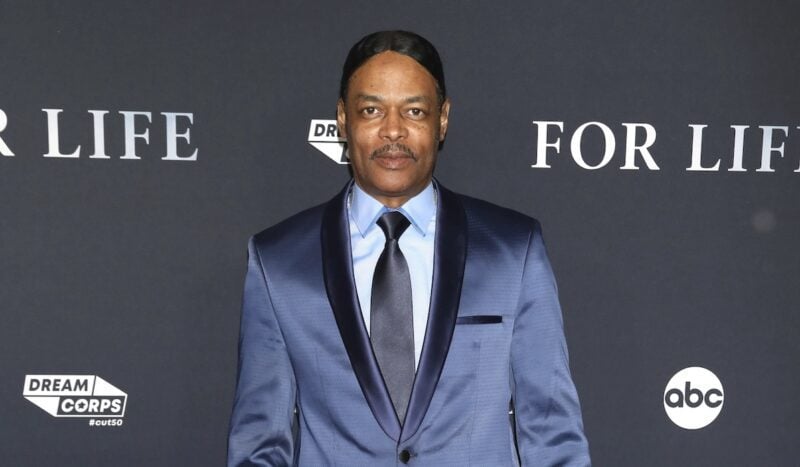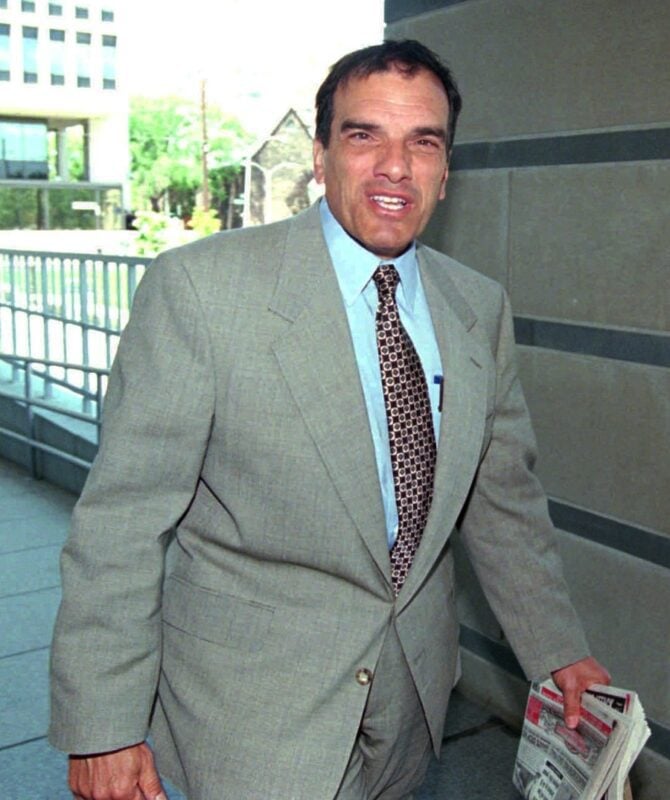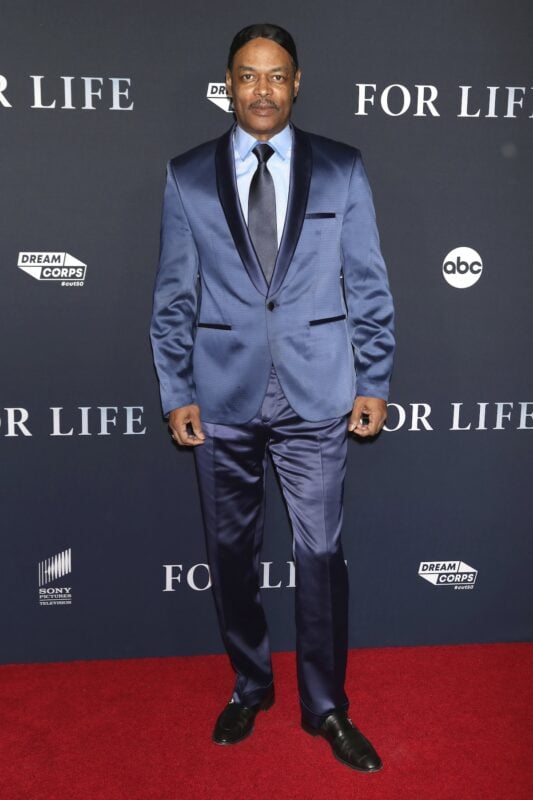How Isaac Wright Jr Overturned Life Sentence & Became a Lawyer

Isaac Wright Jr. attends the premiere of ABC’s “For Life,” at Alice Tully Hall on Feb. 5, 2020, in New York. (Photo by Greg Allen/Invision/AP)
Updated August 13, 2024
By Shari Rose ~ February 21, 2019
Sentenced to prison for life, Isaac Wright Jr. spent more than 7 years studying law to prove his innocence. This is the story of a man who studied law while incarcerated, overturned his own conviction and became a practicing lawyer
While serving a life sentence in prison for a crime he did not commit, Isaac Wright Jr. sought to overturn his conviction by studying New Jersey law and building his own defense. Over the next several years, he worked toward proving his innocence and even served as a paralegal for inmates while behind bars. Finally representing himself on appeal, Wright successfully overturned his kingpin conviction and life sentence in prison.
After that victory, Wright continued to build his case as he still faced decades in prison for a litany of other falsified drug convictions. To be fully exonerated, he knew he needed to expose the individuals responsible for his false conviction, including the county prosecutor, Nicholas Bissell. Through a series of legal strategies, Wright exposed rampant police misconduct and illegal courtroom deals that originally condemned him to a lifetime in jail. This is the incredible true story of Isaac Wright Jr., the former prisoner who became a lawyer to defend other victims of legal abuse.
- Isaac Wright Jr Convicted & Sentenced to Life in Jail
- Officer Confession Breaks Wright’s Case Open
- Prosecutor Nicholas Bissell Leads Police on Manhunt
- Isaac Wright Jr Freed From Prison & Reaches Settlement
- Wright Fights to Practice Law in New Jersey
- Wright’s Story Featured in “For Life” Television Show
- 2021 Run for NYC Mayor
- Isaac Wright Jr Today
Isaac Wright Jr Convicted & Sentenced to Life in Jail
Before his arrest, Wright was a 28-year-old music producer who had co-founded a musical group, called The Cover Girls, that included his wife, Sunshine Wright. In 1989, he was arrested along with 10 other people as part of an alleged cocaine drug ring in Somerset County, NJ. Wright was one of the first people to ever be charged with New Jersey’s 1986 drug kingpin law.
While awaiting trial in prison, Wright studied state law and represented himself in court. During his testimony, he denied any involvement in the drug ring and implored the jury to acknowledge holes in the prosecution’s argument. “This entire case is based on a lie – all motivated by jealousy, vindictiveness and racial selectiveness,” Wright told the jury.
On April 26, 1991, the jury found Isaac Wright Jr. guilty, and he was sentenced to life in federal prison with no possibility of parole for 30 years.
Over the next five years, Wright continued to study law and began working with a prison organization called Inmate Legal Assistance as a paralegal. He represented inmates accused of infractions, gaining valuable experience in building a legal defense. Soon, he would be representing himself in court again on appeal. And this time, he would be ready to expose the people and system that falsely condemned him to life in jail.
Officer Confession Breaks Wright’s Case Open
Through false witness testimony, fabricated police reports, and bribes to defense attorneys, one New Jersey prosecutor condemned Wright to life in prison. His name was Nicholas L. Bissell Jr., and he had served as Somerset County prosecutor for more than a decade.

Former Somerset County prosecutor Nicholas L. Bissell Jr. arrives at the federal courthouse in Newark on May 30, 1996. The following day, Bissell was convicted by a jury on all counts of charges he cheated his business partners and the Internal Revenue Service, as well as threatened his associates. (AP Photo/Mike Derer)
Wright understood that an overturning of his conviction would require Bissell’s corrupt tactics to be unearthed in a courtroom. So, that is precisely what he did.
During an evidentiary hearing in 1996, Wright cross-examined a police officer involved with the kingpin case that condemned him to life behind bars. Somerset County detective James Dugan confessed to a slew of misconduct violations in Wright’s case, from systemic police misconduct to illegal cover-ups. While on the stand, Dugan alleged that Bissell ordered officers to falsify police reports and fabricate evidence to get a guilty verdict from the jury years before. Furthermore, Dugan said Bissell had secured false testimony from witnesses and made deals with defense attorneys to encourage their clients lie on the stand and point to Isaac Wright Jr. as their drug kingpin.
Prosecutor Nicholas Bissell Leads Police on Manhunt
As a result of Dugan’s explosive testimony, Bissell was arrested and tried in court on dozens of charges in 1995. He was found guilty on 30 counts, including obstruction of justice, perjury, and abuse of power. He was put under house arrest to be with his wife and two children until the sentencing trial. However, two days before he faced a judge, Bissell cut his ankle monitor and fled. An international manhunt ensued.
Now a fugitive, Bissell crossed state lines and eventually led police to a Nevada hotel room. As officers broke down the door, Nicholas Bissell committed suicide on November 26, 1996.
For her part in a tax fraud scheme, largely unrelated to Wright’s case, Bissell’s wife was sentenced to two months in federal prison. She began her sentence in January 1997. Their children, two teenage girls, were sent to live with a caregiver while their mother was incarcerated.
- More stories: When Columbia Expelled Robert Burke for Anti-Nazi Protests in 1936
- More stories: Prison Gerrymandering Is a Modern 3/5 Compromise
- More stories: How Ruben Salazar Gave Voice to Chicanos Until He Was Killed by Police
Isaac Wright Jr Freed From Prison & Reaches Settlement
In the wake of shocking police misconduct and prosecutorial abuses, Isaac Wright Jr. was fully exonerated of all charges and released from prison. He ultimately served more than 7 years in jail at the maximum security facility in New Jersey. In the years after his release, Wright successfully reached a settlement in his civil suit for more than $480,000.
With his convictions vacated and case dismissed, he set his sights on becoming a practicing lawyer in Somerset County—the same county that locked him away less than a decade before. A free man, Wright continued to pursue his legal education and study New Jersey law. He received his undergraduate degree in 2002, and graduated from Saint Thomas University School of Law in 2007. The following year, he passed the New Jersey bar exam.
All that remained in Isaac Wright Jr.’s path to become a practicing lawyer was his admission to the bar. However, New Jersey’s legal system wasn’t through with him yet, and did everything in its power to prevent the former prisoner from becoming a lawyer in the state.
Wright Fights to Practice Law in New Jersey
For the next 9 years, the state bar’s Committee on Character investigated every detail of Wright’s life. And in its investigation, there is virtually no limit on what information the committee can collect as evidence against allowing a person to practice law in New Jersey.
For example, Section 201:3 in the Committee on Character’s regulations stipulates that committee members can request documentation from candidate’s “named references, current or former employers, Federal and State regulators or agencies, law enforcement agencies, educational institutions, financial institutions, or medical personnel.” If the candidate refuses to release these documents, the committee has the power to deny their admittance to the state bar:
“…failure or refusal to supply information deemed relevant by the Committee … may be grounds for the withholding of certification.”
For nearly a decade, virtually every aspect of Wright’s life was subject to investigation by the state as the committee searched for any reason to stop him from practicing law. It eventually took an intervention from the state’s highest court to end the overreach. In 2017, the New Jersey Supreme Court personally admitted Isaac Wright Jr. to the bar.
Today, Wright is a practicing lawyer with the firm, Hunt, Hamlin & Ridley in Newark. What is Wright’s legal specialty? Slaying giants:
“I went to law school for one reason and one reason only,” Wright says. “To slay giants for a price. And if the giant is big enough and the cause is important enough, I’ll do it for free, especially when it involves helping those who cannot help themselves.”
Wright’s Story Featured in “For Life” Television Show
In 2018, rapper and business mogul Curtis “50 Cent” Jackson began producing a new television show called “For Life.” With Wright as an executive producer and consultant, “For Life” follows the character of Aaron Wallace and his fight for justice while behind bars. Most of this show is accurate to Wright’s life and experience, but some details, including those about Wright’s wife and daughter, were changed for television.

Curtis “50 Cent” Jackson, from left, Nicholas Pinnock and Isaac Wright Jr. attend the premiere of ABC’s “For Life,” at Alice Tully Hall on Feb. 5, 2020, in New York. (Photo by Greg Allen/Invision/AP)
Wright has spoken extensively about his experience working with 50 Cent on “For Life,” as well as the experience of having his life portrayed on screen. In an interview with the New York Times, Wright said that one thing that gives him hope is making the lives of the incarcerated accessible to an audience. Speaking about the character based on him, Wright said:
“This show is making its viewers an extended family of a person that’s incarcerated. They’re rooting for him. They suffer when he suffers. They empathize with his struggle. And then he becomes that son or brother they couldn’t imagine it happening to.”
- More stories: Reckless Eyeballing: How Matt Ingram’s Story Reveals Fear of Black Sexuality
- More stories: The Triumphs of Edward Gardner at the 1928 Bunion Derby
- More stories: How a Retractable Syringe Exposed Powerful Group Purchasing Organizations (GPOs)
2021 Run for NYC Mayor
On December 1, 2020, Isaac Wright Jr. announced his candidacy for New York City mayor. In an interview with People magazine, he said that major issues to him are “criminal justice reform, housing, infrastructure, and the economy.” On Wright’s mayoral campaign site, school desegregation, transit, and policing are also highlighted as top priorities.
Wright also spoke about the killing of George Floyd and the officer who knelt on his neck, Derek Chauvin: “[Chauvin’s] face showed no concern. There was absolutely not an iota of [comprehension of] what he was doing … But there’s a bigger picture: the true blame. The blame in totality should be put on the system.”
Wright lost the Democratic primary on June 22, 2021, in a race that Eric Adams ultimately won five months later.
Isaac Wright Jr Today
Isaac Wright Jr. published a memoir about his legal journey, titled “Marked for Life: One Man’s Fight for Justice from the Inside” in 2022.
In 2023, Wright joined The Legal Advocacy and Education Commission (LAEC) as Director of Advocacy. The LAEC chose Wright for the position in part due to his background as a legal trailblazer and symbol of resilience: “We are confident that Wright’s unique perspective and passion for justice will further empower our work and impact,” wrote the LAEC in its announcement.
Condemned to a prison cell for life, Isaac Wright Jr. educated himself on New Jersey law and crafted his own legal defense to finally, finally, prove his innocence. He was wrongly convicted as a drug kingpin in a larger scheme orchestrated by prosecutor Nicholas Bissell and carried out by many willing legal professionals in Somerset County. By working within the legal system and unearthing damning evidence of prosecutorial cover-ups, rampant police misconduct and witness tampering, Isaac Wright Jr. cleared his name, was freed from prison, secured a well-deserved settlement, and set the stage for his burgeoning career as a defense lawyer.

Isaac Wright Jr. on the red carpet for the premiere of ABC’s “For Life,” a television show based heavily on his fight for justice within New Jersey’s legal system. (Photo by Greg Allen/Invision/AP)
But how many other wrongly convicted men and women across the U.S. are sitting in their cells right now, falsely condemned in a system where police misconduct and corruption reign? It’s unlikely that we’ll ever know the true number. But perhaps with slayers like Wright bringing these cases to light, more giants will be set to fall.
- More stories: Secessions of the Plebeians: A General Strike in Ancient Rome
- More stories: The Fate of Margaret Morgan in Prigg v. Pennsylvania
- More stories: Enietra Washington: Only Confirmed Survivor of the Grim Sleeper
- More stories: The Lives of Ferguson & Black Lives Matter Activists Cut Too Short






